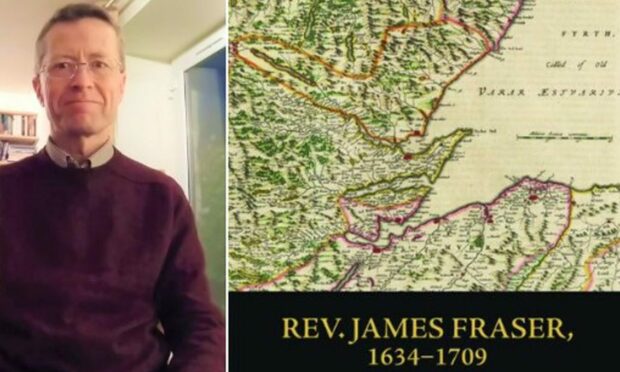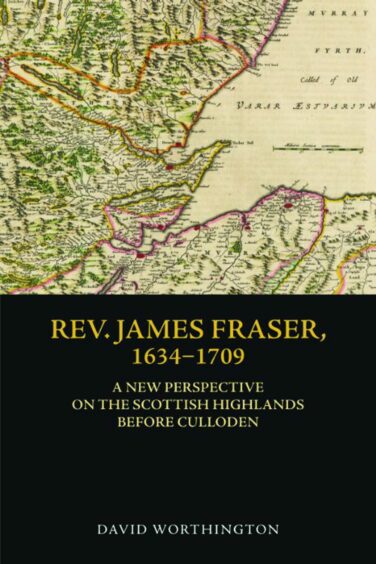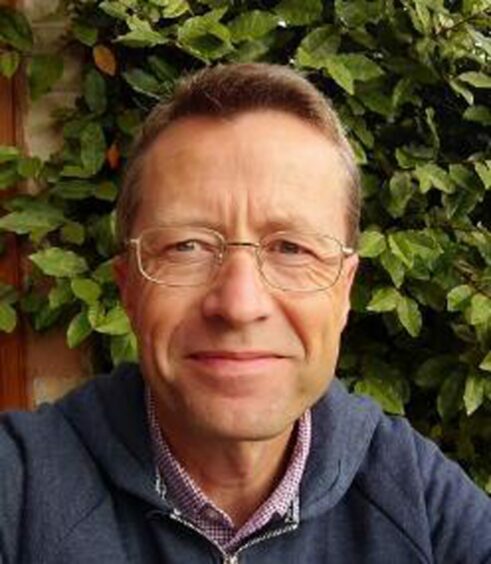University of the Highlands & Islands (UHI) professor David Worthington’s new book uses personal letters and documents about a 17th-Century minister to dispel the misconception of the Highlands as a remote, inward-looking region.
‘Rev James Fraser, 1634-1709: A New Perspective on the Scottish Highlands before Culloden’ is Prof Worthington’s newest book, published in January by Edinburgh University Press.
Prof Worthington has spent more than a decade studying the life and writing of the man he has come to think of as the curious cleric. From his home in the parish of Kirkhill, Rev Fraser set out to travel Europe and brought what he learned back home to the Highlands.
And in his new book, Prof Worthington hopes to point out that what some might consider an oxymoron – a cosmopolitan world-traveller and respected scholar living in the Highlands – is no more out of place in Rev Fraser’s times than our own.
“Many people know a bit about Highlands history. We know about the terrible things that have gone wrong often. From Culloden on through the clearances to emigration, these are the big themes in Highlands history and rightly so.
“What he shows us is how possible it is to live a vital, significant scholarly life while living in the Highlands and Islands.”
Highlands history is about more than disaster
The bulk of Prof Worthington’s research involved a close study of Rev Fraser’s travel log. In 1657, still in his early twenties, Rev Fraser set out across the North Sea to start a three-year journey across Europe.
His maverick approach to the journey and the potential dangers he faced as an incognito Protestant travelling in Catholic Europe add a sense of adventure to his story. But, Prof Worthington found that Rev Fraser might not have seemed so unusual in his own time.
“There’s a perception that the Highlands before Culloden, before the clearances, before emigration, was quite inward looking.
“I’m not saying that everyone was like James Fraser. But he tells us of an element to Highland society which is very open and very European.
“There is a consideration of the Highlands as remote that has stuck with us. But I don’t think that is apparent in James Fraser’s work. I don’t think he thought he was remote at all. After all, he could get on a boat in Inverness and travel across the North Sea.”
The man vs the minister
Prof Worthington spoke of two major challenges that he faced in his research. The first was particular to his subject: How to balance the maverick world traveller with the parish minister who settled back home in Kirkhill, where he lived, worked and wrote for decades?
“This man from the Highlands spent three years travelling around Europe. He behaved in quite an unusual way but he left this very rich account of several hundred thousand words about that.
“And I don’t think anybody had really squared that up with this other role that he’s well-known for, which is being a minister.
“What I wanted to do was piece together the individual. Mix together that very cosmopolitan, outward-looking international perspective with the micro-history of him as a parish minister.”
A researcher’s work is never done
The second challenge is how to present a critical portrait of a person and a time in a way that engages modern readers.
“What I’m trying to do is convey a sense of what the period was like before. I’m not the first to do that by any means. But I thought the biography might just click with people and give them a sense of what a life could be like before Culloden.”
You’d be forgiven for thinking that 10 years spent in close examination of someone who lived more than 300 years ago is long enough.
But Prof Worthington said that his book has left him with even more questions, and it may not be long before he returns to give Rev Fraser another visit.
He would love to see Rev Fraser’s travel account published in its own right, to give readers a first-hand look at what the world looked like through his eyes.
“I did this very gradually over a decade, so I am in a strange phase right now,” he said when asked about his next steps.
“But I don’t think I’m finished with James Fraser, and the book really asks a lot of questions.”
A vital life lived in the Highlands
If there’s any lesson he hopes readers will take away from his latest work, it’s that no doors are closed to you just because you live in the Highlands and Islands.
“Fraser did leave to travel. He did study away. But his permanent, major place of work and residence was in the Highlands.
“That to me is very striking and I can’t help but also think about what we’re doing at UHI.
“It’s very important that we retain populations in the Highlands, that we encourage the population in the Highlands and don’t fall into depopulation again.
“He shows us good and bad lessons, but he does indicate how it’s possible to cultivate a very vibrant and vital scholarly life while living in the Highlands.”
Read more from the Schools and Family team
UHI Inverness gives students a hand with free meals and cooking lessons
Parents raise crush fears over ‘dangerous’ Inverness Royal Academy



Conversation